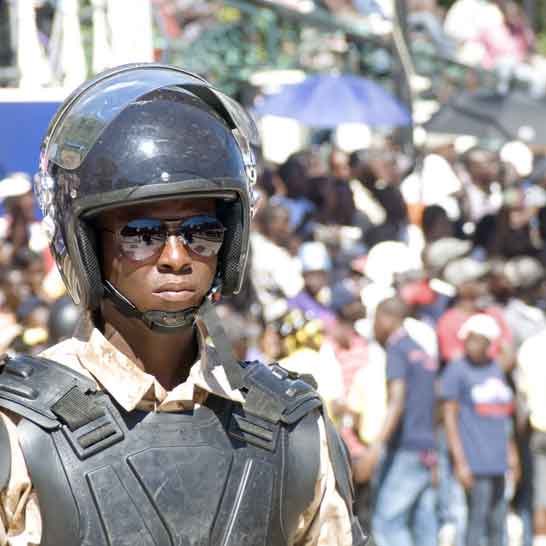For eight consecutive days, Kenscoff, Haiti, known to be a neighborhood where some affluent people reside, was subjected to terror by armed gangs. The terror resulted in at least 40 deaths and the displacement of more than 1,660 residents. This marks a new wave of violence extending into previously secure areas of Haiti, a mere six miles southeast of the capital, Port-au-Prince.
Mayor Jean Massillon addressed the media on Monday, February 3, 2025, reporting that Kenscoff had been under assault for several days. He attributed the attacks to the Viv Ansanm gang coalition, with gunmen reportedly moving from house to house, shooting without discrimination. Massillon’s report paints a grim picture of the situation.
According to Massillon, the area was still besieged, and reinforcements were desperately needed. The deceased included pastors, teachers, and children. However, the actual casualty count might be higher, as authorities have been unable to reach certain parts of the neighborhood, which is home to several politicians and business leaders.
Many of the victims are working-class residents who farm on the outskirts of the neighborhood, located in the foothills of a nearby mountain range.
The police union has publicly criticized the government’s handling of the Kenscoff attack, stating that with proper equipment and resources, the assault “could have been avoided.” The national police’s lack of planning and coordination has hindered efforts to safeguard residents as gangs continue to establish control over parts of the neighborhood.
This recent onslaught follows a brutal massacre in December in the Cité Soleil district of Port-au-Prince. Gang leader Micanor “Mikanò” Altès led an attack that resulted in the death of over 180 people. This massacre took place on December 6 and 7, with Micanor personally killing at least 60 elderly individuals on Friday and at least 50 more with machetes and knives on Saturday, as reported by human rights observers. The Wharf Jérémie area remains under attack, with elderly residents and voodoo practitioners being specifically targeted.
The UN Human Rights Office recorded unprecedented levels of gang violence in 2024, with 5,601 deaths and 2,212 injuries across Haiti. The office documented 315 lynchings of suspected gang members and 281 alleged executions by specialized police units throughout the year.
The international response includes a UN-backed mission comprising more than 600 Kenyan police officers, recently joined by 70 Salvadoran soldiers. The soldiers are providing air support expertise, which Kenyan officials have stated will be crucial for medical evacuations. Personnel from Jamaica and Guatemala have also joined the mission, although the force remains understaffed and ill-equipped.
The violence has resulted in the displacement of over one million people, with an 87% increase in displacement in Port-au-Prince between 2023 and 2024. Half of the displaced are children, now facing severe health and safety risks in rural areas with scarce resources. Gangs now control 85% of Port-au-Prince, disrupting healthcare services and leading to the closure of the international airport. A recent attack during the reopening of a public hospital resulted in the deaths of two reporters and a police officer.
The United Nations secretary-general has issued a warning that without further international support, Port-au-Prince could be completely taken over by gangs. He underscored the urgent need to strengthen Haiti’s national police and multinational forces as the violence continues to infiltrate previously unaffected areas.

